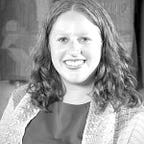Remembering Who You Are
And in 2022, may you be blessed in all that you are.
My father took to a certain custom when my brothers and I left for college. Before getting on the plane, he’d hug us close, and in his serious voice, he’d remind us, “Remember who you are.”
We are always warned that we will someday become our parents. Low and behold, the other day when I dropped my son off for preschool I found myself holding him close, and speaking softly into his not-so-little-anymore ear, “Remember who you are.”
He laughed, shrugged out of my grasp and ran off to play.
Moments of transition come at their own speed, at a pace that we can rarely control.
Life is like this. It passes us by so quickly.
In this week’s parshah, Jacob, lies on his deathbed and looks out at his family. He gives each of his sons a final blessing. Carefully and individually, for each of his children, he recalls the successes and challenges of their lives. It is as if he is saying to each one, before taking his last breath: “Remember who you are.”
Vayehi literally means “and he lived.” While Jacob knows that he does not have any more time to make different choices or new plans, his sons do. Perhaps his blessings are meant to hold up a mirror to his sons, saying: This is the life you have lived so far. How will you be authentically you in the time you have left?
As American Jews, we celebrate two New Years — one religious, one secular. This gives us multiple Vayehi moments, opportunities to consider our lives lived so far. On our Jewish New Year, we participate in cheshbon hanefesh (an accounting of the soul). And on the secular New Year we have the chance to ask ourselves, are we our best selves as we were on Rosh Hashanah? Have we remembered who we are?
Cheshbon hanefesh is not a once or twice per year responsibility. It is upon us each day to reach our true selves, living lives that are worthy of blessing.
After blessing his sons, Jacob turns to his grandsons, Ephraim and Menasseh. He promises them greatness: “By you shall Israel invoke blessings, saying: God make you like Ephraim and Menasseh.” We as a people have stayed true to this promise. Traditionally, even today, the blessing for a son includes the words: Yesimcha Elohim k’Efraim v’chiMenasseh.”
Jewish liturgist and feminist, Marcia Falk, adapts this blessing for us. If we wish for our children to maintain their authenticity in moments of triumph and moments of challenge, let’s address this directly. Instead of invoking biblical figures, she offers:
To my child: Be who you are. And may you be blessed in all that you are.
In my home, when my husband and I bless our children we use a hybrid model: To our sons, may you be like Ephraim and Menasseh. To our daughter, may you be like Sarah, Rebecca, Rachel and Leah.
Then we add: But most of all, may you always be you.
Perhaps this is what Jacob meant by this final, last-breath-blessing to his children and grandchildren: “Be you, boys.” May you always be you.
With 2022 approaching, we assess our lives as we have lived them so far. We scrubbed our souls clean on the High Holidays, and we recognize now where they might need just a little polish. Have we stayed authentic? Have we stayed true? With another New Year upon us, may you always be yourself. May you always remember who you are.
This story was originally published in the Phoenix Jewish News.
